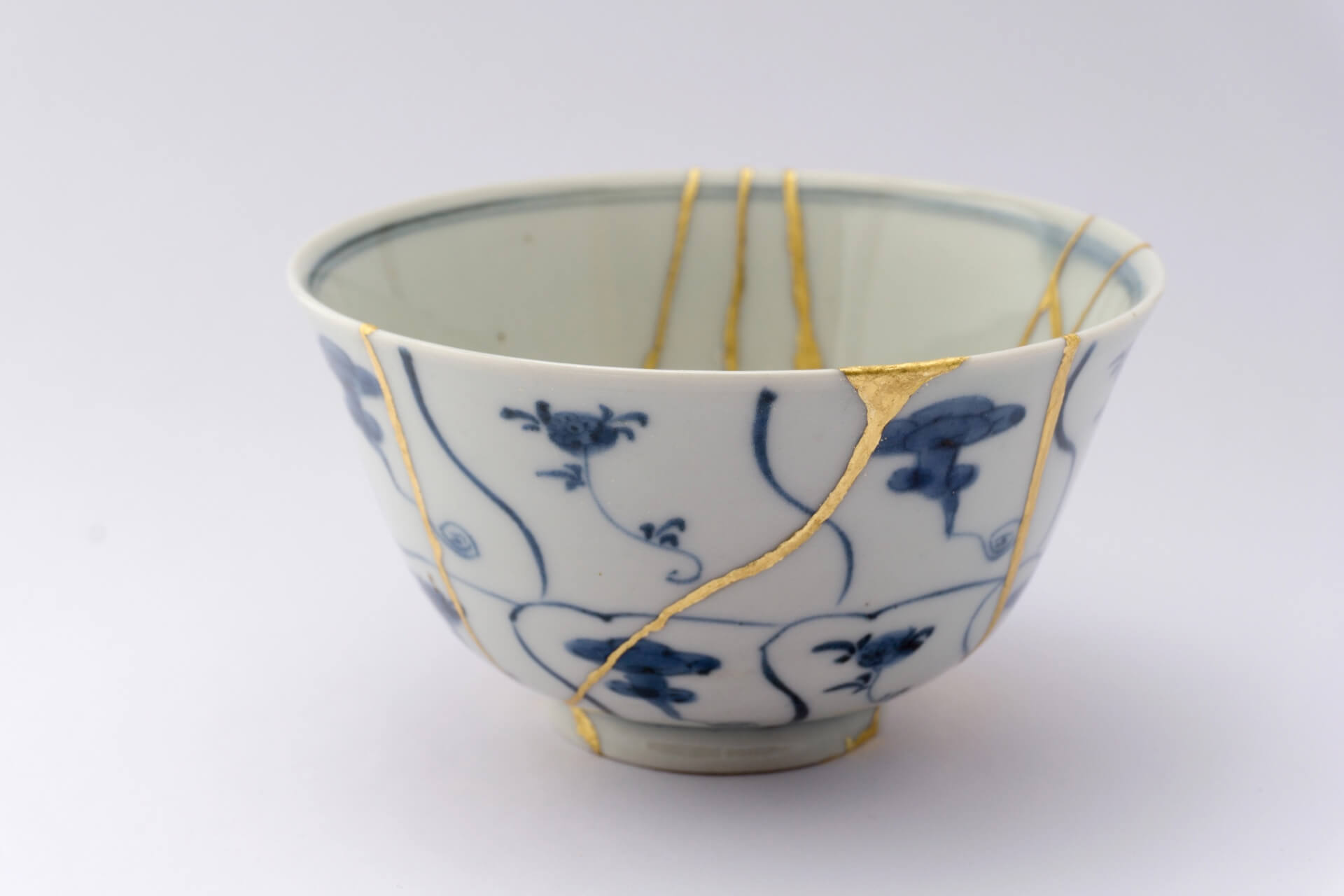
Last Updated: 04 Oct 2025 17. What’s Broken can be Mended 【Column: Leap Before You Look】
Have you ever ぎこちなく感じる (felt awkward) because someone is praising something about your culture? Or am I being too Japanese to feel that way when I hear someone 夢中になる (going gaga) about something?
Let me use the example of 金継ぎ (kintsugi). Kintsugi is the Japanese art of repairing broken pottery by mending the affected areas with うるし (lacquer) mixed with 金粉 (powdered gold). Yes, you’ve seen it on social media. A 茶わん (tea bowl) with delicate gold lines. It sure is a beautiful tradition. They say we don’t throw away things just because they’re broken. We mend them and make them even more beautiful in the process.
That may have been once true, but none of my friends and family do this. We throw away things too easily and replace them with new things. Often, we throw away things even before they’re broken, because they ときめかない (don’t spark joy) any longer. Trust me. Ask こんまり (KonMari).
Another example is moving trees. You may have seen memes of a giant tree with carefully bound roots being hoisted by a crane with an explanation that reads “In Japan, it’s common practice to relocate trees rather than cut them down during construction projects, reflecting a deep respect for nature and a cultural emphasis on 環境保全 (environmental preservation).”
It would be wonderful if we do this to all trees. But sadly, that is not the case. Ask Rochelle Kopp, who is organizing the petition, “神宮外苑1000本の樹木を切らないで〜再開発計画は見直しを! (Protect Jingu Gaien’s trees! Rethink the development plan!)” to which over 225,000 people have signed the petition.
Finally, there is おもてなし (omotenashi). Omotenashi is a Japanese concept of hospitality that anticipates and fulfills a guest’s needs with sincerity and without expecting anything in return. 素晴らしい (Sounds wonderful).
But then, how do you explain “外国人お断り (No Foreigners)” signs at restaurants and other establishments? 人種差別 (Xenophobia)? 言葉の壁 (Language barrier)? Whatever the reason is, that is the opposite of omotenashi. We should be ashamed of this behavior.
Am I 過度に非難する (unduly disparaging) my own culture? Perhaps. But I truly love Japan and Japanese culture. Whenever foreigners praise our culture, it affords us a great opportunity to reeducate ourselves about our own traditions. Whether through kintsugi, omotenashi, or relocating trees, we have the capacity to do better. Because what’s broken can be mended and we can make it even more beautiful in the process.
Related articles
23. Cho-Cho San【Column: Leap Before You Look】
Somehow, I am strongly attracted to Puccini’s opera, 蝶々夫人 (Madama Butterfly). I have been to m
22. Dare to be Barefoot【Column: Leap Before You Look】
One thing I never 屈服する (gave in to) while living here in the US for many years is to wear shoes insi
The culture component and why it matters in management
Let me start with what might at first appear to be a personal story unrelated to cross-cultural mana




